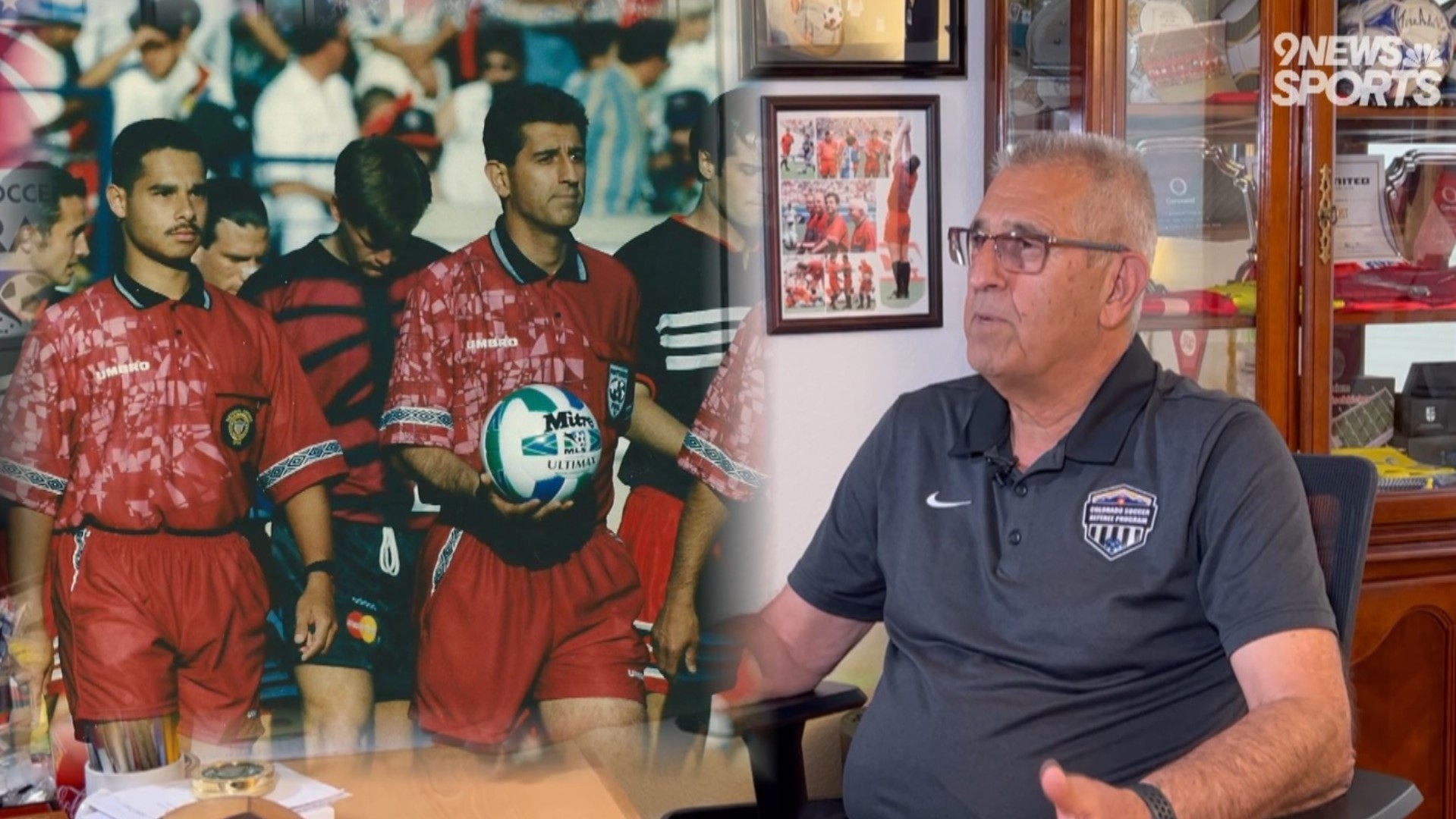GOLDEN, Colo. — After emulating players like Pelé on the pitch as a kid in Iran, Esse Baharmast never imagined his name would be uttered in the same breath as his hero.
"It's something that is just absolutely incredible, especially for a referee," he said.
But when he heard he'd be forever enshrined into the National Soccer Hall of Fame, that was Baharmast's first thought.
"For players and coaches, that's understandable, but for a referee to be in the US Soccer Hall of Fame, is a lifetime achievement," he said.
In his brief 68 years, he's had an entire lifetime of achievements.
"Going to 33 FIFA tournaments, including five Men's World Cups, three Women's World Cups, four Olympics, I did the first opening game of Major League Soccer, then coming back and becoming the director of referees, I think after a while they figured that this guy's done it all so we might as well get him into the Hall of Fame," Baharmast said.
Of all of those tournaments, there's one match in particular that is burned into his brain.
"The '98 World Cup, the crazy match between Brazil and Norway, has to be up there because I made a call that 16 cameras could not see the angle and for 36 hours, I was one of the worst referees in the entire planet," he said. "Then, in 36 hours, I go from one of the worst referees to one of the best referees in the world, and that has pretty much become my signature."
But he hopes it won't be his legacy. He instead wants to be remembered for giving back. Baharmast was named the director of referees for the Colorado Soccer Association in 2018, where he still mentors up-and-coming referees in his own state to this day.
"I have gone to the top of the Everest. I have been to the highest tournaments and I've seen the beautiful view out there. And now, I think if I can reciprocate that for the kids who are trying to achieve the same type of thing, or at least their own highest potential--whatever that may be, if I can do that, then I am giving back to the community. By working with the grassroots referees here in Colorado, by providing support, by being out there and making sure they're not being abused by some parents sometimes or a coach who is just not seeing it eye-to-eye with them, and if I'm out there and I can help them a little bit and make sure they stay in the game and they grow the game and they grow to their full potential, because reffing has done so much for me to get me to the point where I am, and I just want to give it back."

